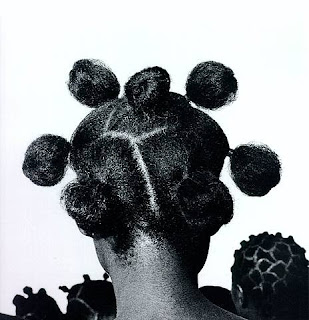
It may be cliché to say this, but I love fashion. I’m an avid fan of Lookbook and the Sartorialist, websites dedicated to documenting the beautifully dressed. I love nothing more than curling up on my sofa with a cup of tea in one hand and the latest copy of Vogue in the other, flicking through glossy pages covered in Chanel couture and Prada shoes that I can’t even dream of owning right now. And when I have the time, I enjoy roaming the streets of Soho in search of the perfect summer dress (something that still eludes me). The seeds of my love for all things chic were sown, however, not in New York City but back home in Lagos. I grew up submerged in style, but in a very different way to how it is experienced here.
I don’t often go to stores to buy clothing at home, because it’s usually cheaper and easier to get them made for you. Tailor-made clothes are an everyday part of life across the African continent, meaning that couture is in no way restricted to the moneyed elite. In Nigeria, one can easily get a trendy party outfit made to your exact measurements (and to showcase every curve) for $20 or less, including the cost of the fabric. Customised clothing isn’t just for special occasions either – my mother rocks boubous and dresses made of colourful ankara material every day. Fabric stores and markets are also a huge part of the local economy – Balogun Market, one of the biggest in Lagos, is a veritable nirvana of laces, jacquards and batiks in every conceivable shade, hue and pattern from all over West Africa.
What I love the most about getting clothing made back home is how much of a role the consumer and their cultural background plays in shaping the fashion world. Over here, a small group of designers determine what look is “in” – whether it’s jumpsuits or if grey is the new black. When you walk into a store in NYC no matter how varied the collections may be, the general “direction” of that season has shaped the designers’ choices and that is inevitably what buyers end up picking off the racks. At home, it’s a different experience. If, for example, I needed an outfit for a wedding, my choice of fabric would probably be determined by the bride, but I could complement it with others as I see fit. The style may be modified slightly by the tailor, but ultimately it’s me who gets to decide if I want a cap-sleeve with a sweetheart neckline, or if I want the embroidery in silver or gold. Also, what I wear may depend on if the bride is Yoruba (a buba and iro) or Urhobo (a skirt and blouse with a regal gele). What you wear isn’t determined by fashion editors’ lists of trends, but rather by the weather, custom and/or a sense of whimsy. Clothing – a functional part of everyone’s lives – is a means of creative expression for the masses, but is even more so when you’re a part of the process from yards and tape measures to fittings and zippers.
This is not to say that style exists in a void in Africa. Designers like Louis Vuitton and Boxing Kitten have drawn on African style for their collections. Magazines, bloggers and designers such as Arise, Pop Africana and Duro Olowu are becoming increasingly influential and many people (myself included) often draw inspiration from European clothes but rework them in traditional fabrics. But what I think makes African fashion so unique is how you can see art, function and tradition coming together in such a seemingly effortless way, elevating dressing beyond the mundanity of the mall without putting it out of reach in glass-fronted stores.
















